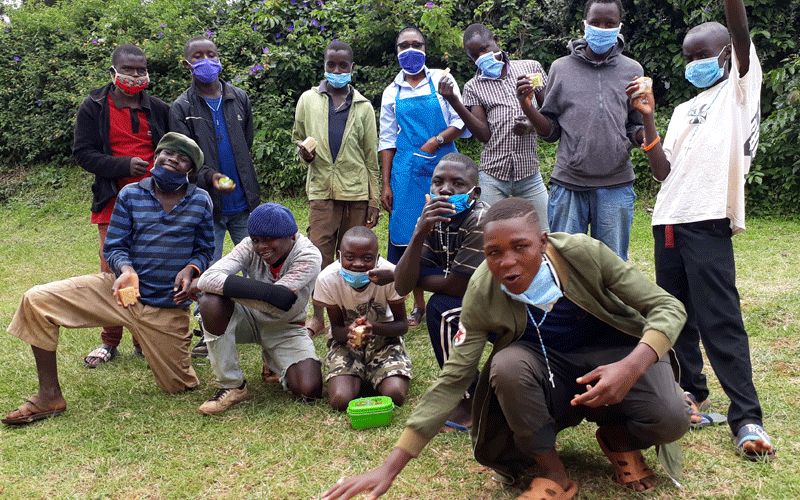 Ten boys who had nowhere to go after the center reunited 23 boys with their families through an emergency integration program were forced to spend nights in forests around the town since they were no longer wanted on the streets.
Ten boys who had nowhere to go after the center reunited 23 boys with their families through an emergency integration program were forced to spend nights in forests around the town since they were no longer wanted on the streets.
Sr. Winnie was shown in many images braving rains to feed the street boys in the open before they would retire to their hideouts, away from brutal police officers and equally hostile Kitale residents.
“No one wants to see the boys on the streets. When the police on patrol see them on the streets at night as they (police) enforce the curfew, they beat them very badly. Many street boys I know now retire to forests and railway centers for the night and only show up on the streets at daybreak,” said Sr. Winnie said in the April interview with ACI Africa.
The COVID-19 turbulence had not stopped Sr. Winnie from reaching out to the boys who were still living on the streets as well as conducting home visits for those who had been reunited with their families.

(Story continues below)
When she spoke to ACI Africa before the Presidential award, Sr. Winnie had mobilized the 10 boys to Kitale showground where she assembled the boys for a meal and gave them a separate share to eat from their hideouts.
Mondays, Wednesdays and Fridays are days when staff at USC take food to waiting street children at the Kitale showground where the boys like hanging out. Tuesdays and Thursdays are reserved for conducting home visits to check on the progress of the boys in their homes.
“We encourage the boys to carry food containers where we serve them food on three weekdays. After eating the meal together, they take the rest away in their food containers,” Sr. Winnie said.
But on Tuesday, June 2, a day after the award, Sr. Winnie reported that she had already secured a space within the Sacred Heart Cathedral compound where the boys eat their food with a roof over their head.
“Kitale is an interesting place. It is always raining over here and sometimes it rains without warning. That’s why most of our meals were served in the rains. But now I’m glad we have a safe place where we can eat together in peace,” she says and adds, “Many days I was so emotional seeing the children in the rain. Their image lingered in my head every time I left them in those rains.”
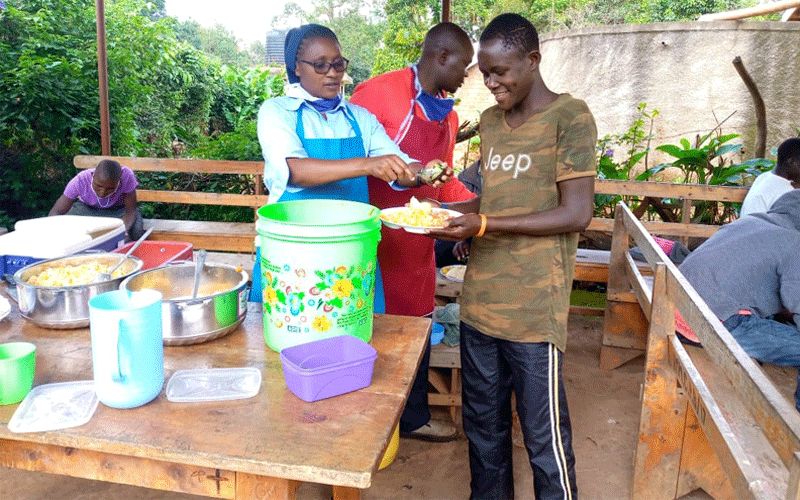 Additionally, she says, some adults showed up whenever her team brought food to the showground and she had no way of sending them away so that the boys would have enough to eat.
Additionally, she says, some adults showed up whenever her team brought food to the showground and she had no way of sending them away so that the boys would have enough to eat.
Weighed down by the pain of the street children, Sr. Winnie approached the Vicar General of Kitale Diocese who gave her project a space within the Immaculate Heart Cathedral premises and she has since relocated the boys from the open showground.
“Today, the boys don’t have to eat their food in a rush for fear of rain. They also have time to socialize after a meal because they have a roof over their head,” she says.
Additionally, the center has seen a consistency in attendance for meals, which is a plus for the organization that is interested in establishing a relationship with the boys for a successful integration process.
Two of the boys that had been reunited with their families after the announcement of the curfew have already come back on the streets.

“Two is not a bad number considering the haphazard way we reunited the boys with their families. In fact, I thought that nearly all of them would be back on the streets because a proper integration process was not followed in reuniting them with their families. We did everything in a rush because of the curfew,” Sr. Winnie says.
However, Upendo Street Children has had a new set of challenges, including stalled recruitment and heavy expenditure that extends to families of the boys.
“These days, we are feeding boys who were not in our system because when they come, we can’t send them away. We also can’t recruit them in our program because the COVID-19 environment does not allow for proper interviews and follow-up interventions for a complete recruitment process,” Sr. Winnie says.
She adds, “Now, we are only stuck at feeding the boys yet our objective goes beyond just feeding. We want to transform the lives of these boys. We want to give them family, both at the center and back where they came from. We want to leave an impact in the lives of these boys because I believe that they don’t belong on the streets.”
“We are spending more than we used to spend before COVID-19. Fuel to go around on home visits is already consuming a lot of money,” she says, adding that she brings 8 kilos of maize or maize flour, 2 kilos of beans, cooking oil, soap and other basic items on each visit to sustain the families of the street boys. Sometimes, she brings clothes and beddings depending on need.
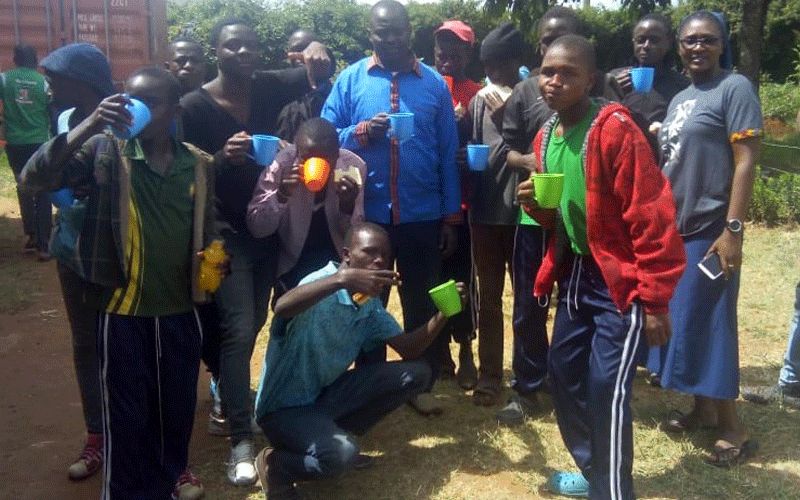 But Sr. Winnie’s greatest desire, she reveals, has been to see street children in Kitale at a permanent facility where they will get life skills and other training. It is the only thing that came to her mind when she received news that she had been listed for the Uzalendo Award.
But Sr. Winnie’s greatest desire, she reveals, has been to see street children in Kitale at a permanent facility where they will get life skills and other training. It is the only thing that came to her mind when she received news that she had been listed for the Uzalendo Award.
“We applied to collaborate with the County in order to have a good space where we can intergrate more training skills to the children and monitor the consistency in rehabilitation process,” she says.
Meanwhile, the alumna of Tangaza University College (TUC), a constituent College of the Kenya-based Catholic University of Eastern Africa (CUEA), has been hailed by her alma mater for impacting lives in her ministry.
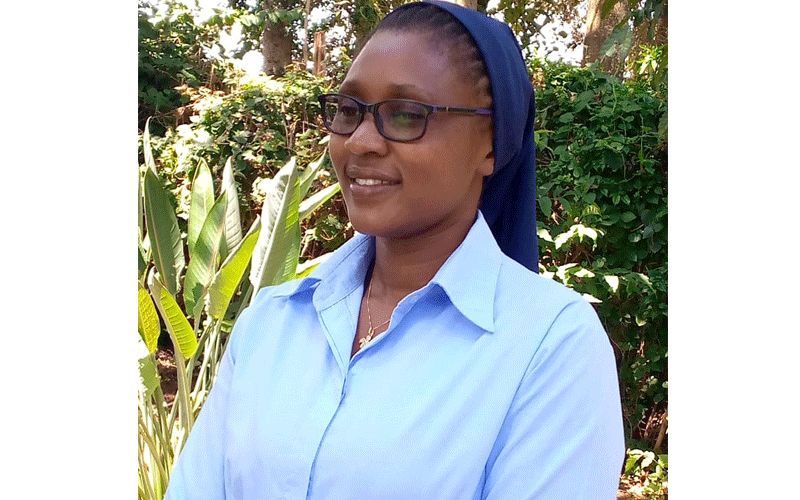 Referencing the award in a communique dated Tuesday, June 2, the Director of TUC’s Institute of Social Communication (ISC), Fr. Cleophas Tesha said, “We are happy that one of such recognized and honoured persons is our immediate former student (alumna) who graduated in October last year namely, Sr. Winnie Mutuku of the Daughters of Charity of St. Vincent de Paul.”
Referencing the award in a communique dated Tuesday, June 2, the Director of TUC’s Institute of Social Communication (ISC), Fr. Cleophas Tesha said, “We are happy that one of such recognized and honoured persons is our immediate former student (alumna) who graduated in October last year namely, Sr. Winnie Mutuku of the Daughters of Charity of St. Vincent de Paul.”
Fr. Cleophas expressed his appreciation for the highly talented nun who, he said, was using her networking, collaboration and communication skills and confidence acquired during her training at TUC “to motivate, promote and grow talents among the boys she serves.”
“May her recognition remain a witness to all of our students that yes, Tangaza is one of the best places to learn and experience holistic growth,” the Tanzanian-born Dominican Cleric said and added, “Indeed our motto at Tangaza University College, namely, “Teaching Minds, Touching Hearts and Transforming Lives” continues to speak louder.”
Agnes Aineah is a Kenyan journalist with a background in digital and newspaper reporting. She holds a Master of Arts in Digital Journalism from the Aga Khan University, Graduate School of Media and Communications and a Bachelor's Degree in Linguistics, Media and Communications from Kenya's Moi University. Agnes currently serves as a journalist for ACI Africa.
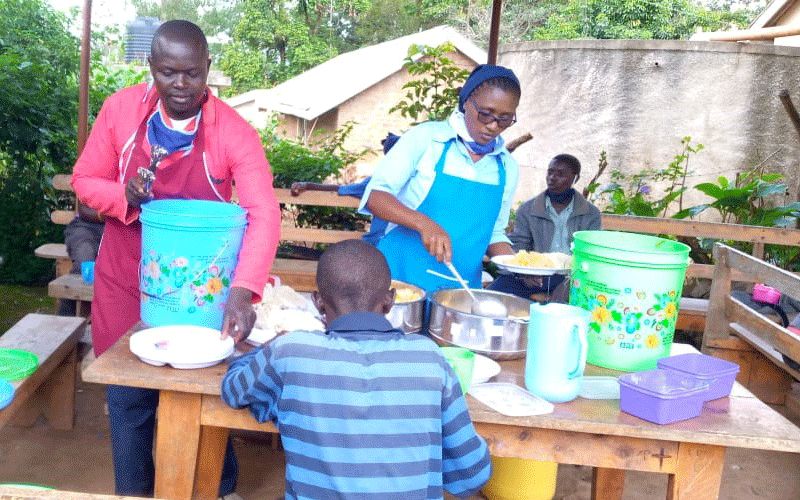



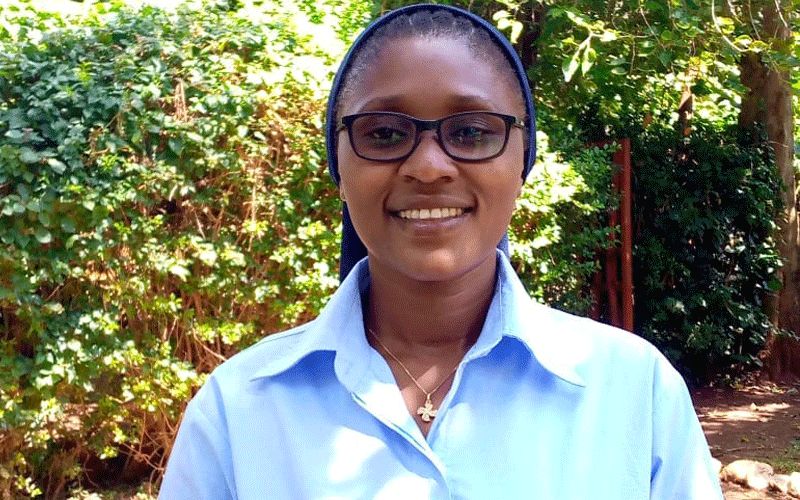
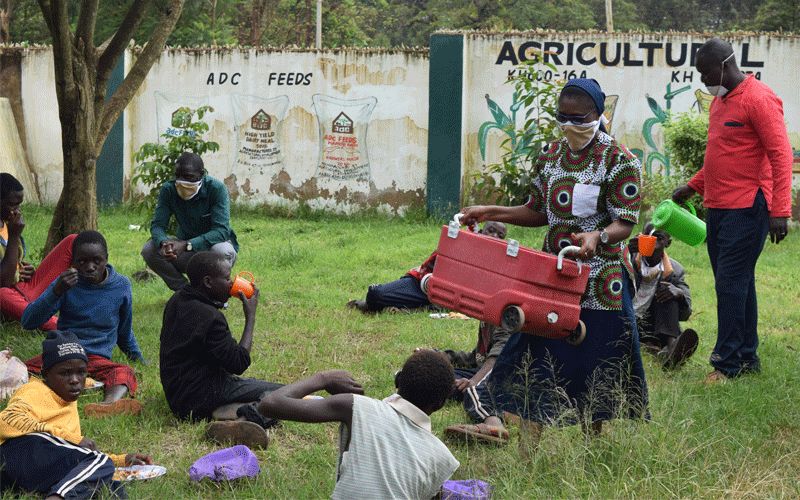 He added, “The names of the inaugural recipients of this high National Honour have been published in a Special Issue of the Kenya Gazette dedicated to them.”
He added, “The names of the inaugural recipients of this high National Honour have been published in a Special Issue of the Kenya Gazette dedicated to them.”
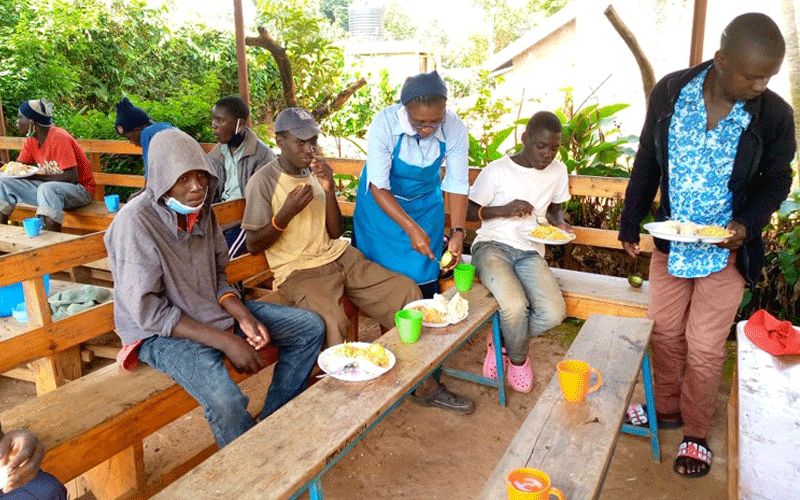
 Ten boys who had nowhere to go after the center reunited 23 boys with their families through an emergency integration program were forced to spend nights in forests around the town since they were no longer wanted on the streets.
Ten boys who had nowhere to go after the center reunited 23 boys with their families through an emergency integration program were forced to spend nights in forests around the town since they were no longer wanted on the streets.
 Additionally, she says, some adults showed up whenever her team brought food to the showground and she had no way of sending them away so that the boys would have enough to eat.
Additionally, she says, some adults showed up whenever her team brought food to the showground and she had no way of sending them away so that the boys would have enough to eat.
 But Sr. Winnie’s greatest desire, she reveals, has been to see street children in Kitale at a permanent facility where they will get life skills and other training. It is the only thing that came to her mind when she received news that she had been listed for the Uzalendo Award.
But Sr. Winnie’s greatest desire, she reveals, has been to see street children in Kitale at a permanent facility where they will get life skills and other training. It is the only thing that came to her mind when she received news that she had been listed for the Uzalendo Award. Referencing the award in a communique dated Tuesday, June 2, the Director of TUC’s Institute of Social Communication (ISC), Fr. Cleophas Tesha said, “We are happy that one of such recognized and honoured persons is our immediate former student (alumna) who graduated in October last year namely, Sr. Winnie Mutuku of the Daughters of Charity of St. Vincent de Paul.”
Referencing the award in a communique dated Tuesday, June 2, the Director of TUC’s Institute of Social Communication (ISC), Fr. Cleophas Tesha said, “We are happy that one of such recognized and honoured persons is our immediate former student (alumna) who graduated in October last year namely, Sr. Winnie Mutuku of the Daughters of Charity of St. Vincent de Paul.”


